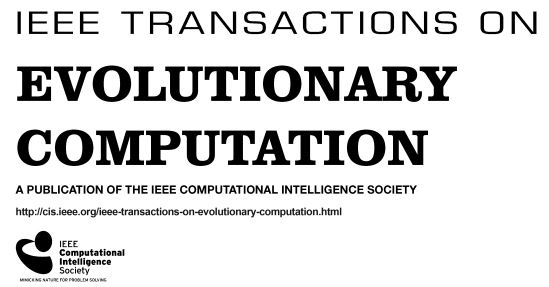Deep Reinforcement Learning Assisted Genetic Programming Ensemble Hyper-Heuristics for Dynamic Scheduling of Container Port Trucks
IF 11.7
1区 计算机科学
Q1 COMPUTER SCIENCE, ARTIFICIAL INTELLIGENCE
引用次数: 0
Abstract
Efficient truck dispatching is crucial for optimizing container terminal operations within dynamic and complex scenarios. Despite good progress being made recently with more advanced uncertainty-handling techniques, existing approaches still have generalization issues and require considerable expertise and manual interventions in algorithm design. In this work, we present deep reinforcement learning-assisted genetic programming hyper-heuristics (DRL-GPHHs) and their ensemble variant (DRL-GPEHH). These frameworks utilize a reinforcement learning (RL) agent to orchestrate a set of auto-generated genetic programming (GP) low-level heuristics, leveraging the collective intelligence, ensuring advanced robustness and an increased level of automation of the algorithm development. DRL-GPEHH, notably, excels through its concurrent integration of a GP heuristic ensemble, achieving enhanced adaptability and performance in complex, dynamic optimization tasks. This method effectively navigates traditional convergence issues of deep RL (DRL) in sparse reward and vast action spaces, while avoiding the reliance on expert-designed heuristics. It also addresses the inadequate performance of the single GP individual in varying and complex environments and preserves the inherent interpretability of the GP approach. Evaluations across various real port operational instances highlight the adaptability and efficacy of our frameworks. Essentially, innovations in DRL-GPHH and DRL-GPEHH reveal the synergistic potential of RL and GP in dynamic truck dispatching, yielding transformative impacts on algorithm design and significantly advancing solutions to complex real-world optimization problems.用于集装箱港口卡车动态调度的深度强化学习辅助遗传编程组合超euristics
在动态和复杂的情况下,高效的卡车调度是优化集装箱码头运营的关键。尽管最近在更先进的不确定性处理技术方面取得了良好的进展,但现有的方法仍然存在泛化问题,并且在算法设计中需要大量的专业知识和人工干预。在这项工作中,我们提出了深度强化学习辅助遗传规划超启发式(DRL-GPHHs)及其集成变体(DRL-GPEHH)。这些框架利用强化学习(RL)代理来编排一组自动生成的遗传规划(GP)低级启发式,利用集体智能,确保先进的鲁棒性和算法开发的自动化水平的提高。值得注意的是,DRL-GPEHH通过其GP启发式集成的并发集成而表现出色,在复杂的动态优化任务中实现了增强的适应性和性能。该方法有效地解决了深度强化学习(DRL)在稀疏奖励和巨大动作空间中的传统收敛问题,同时避免了对专家设计的启发式的依赖。它还解决了单个GP个体在不同和复杂的环境中表现不佳的问题,并保留了GP方法固有的可解释性。对各种实际港口操作实例的评估突出了我们框架的适应性和有效性。从本质上讲,DRL-GPHH和DRL-GPEHH的创新揭示了RL和GP在动态卡车调度中的协同潜力,对算法设计产生了革命性的影响,并显著推进了复杂现实世界优化问题的解决方案。
本文章由计算机程序翻译,如有差异,请以英文原文为准。
求助全文
约1分钟内获得全文
求助全文
来源期刊

IEEE Transactions on Evolutionary Computation
工程技术-计算机:理论方法
CiteScore
21.90
自引率
9.80%
发文量
196
审稿时长
3.6 months
期刊介绍:
The IEEE Transactions on Evolutionary Computation is published by the IEEE Computational Intelligence Society on behalf of 13 societies: Circuits and Systems; Computer; Control Systems; Engineering in Medicine and Biology; Industrial Electronics; Industry Applications; Lasers and Electro-Optics; Oceanic Engineering; Power Engineering; Robotics and Automation; Signal Processing; Social Implications of Technology; and Systems, Man, and Cybernetics. The journal publishes original papers in evolutionary computation and related areas such as nature-inspired algorithms, population-based methods, optimization, and hybrid systems. It welcomes both purely theoretical papers and application papers that provide general insights into these areas of computation.
 求助内容:
求助内容: 应助结果提醒方式:
应助结果提醒方式:


